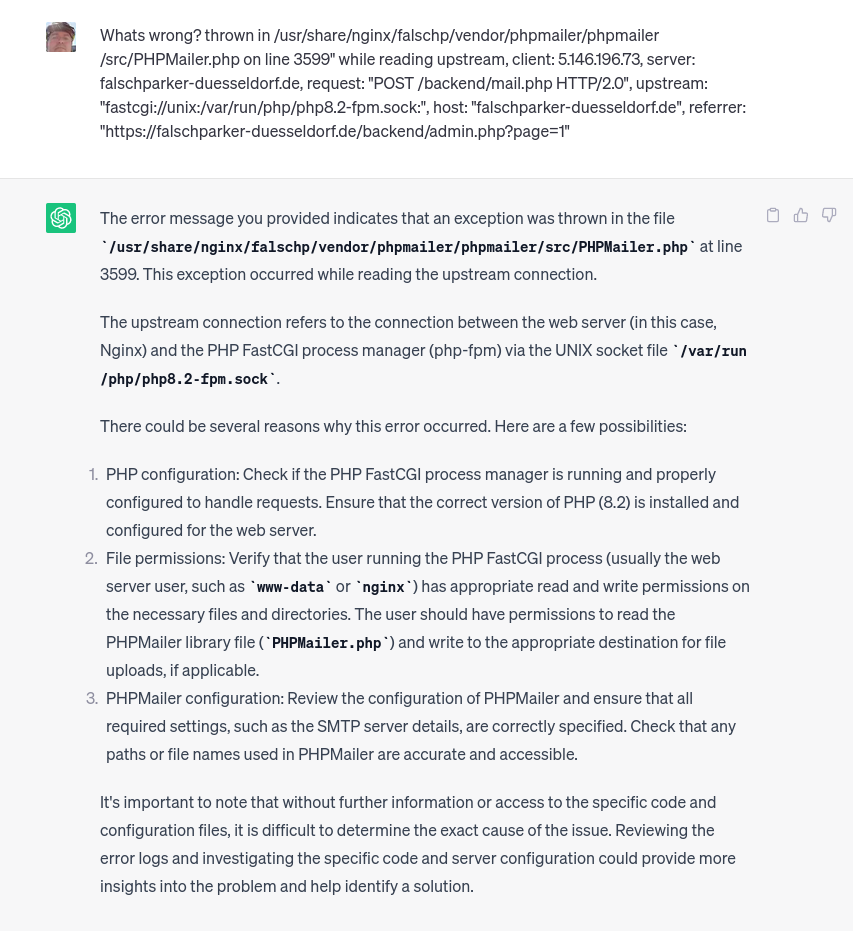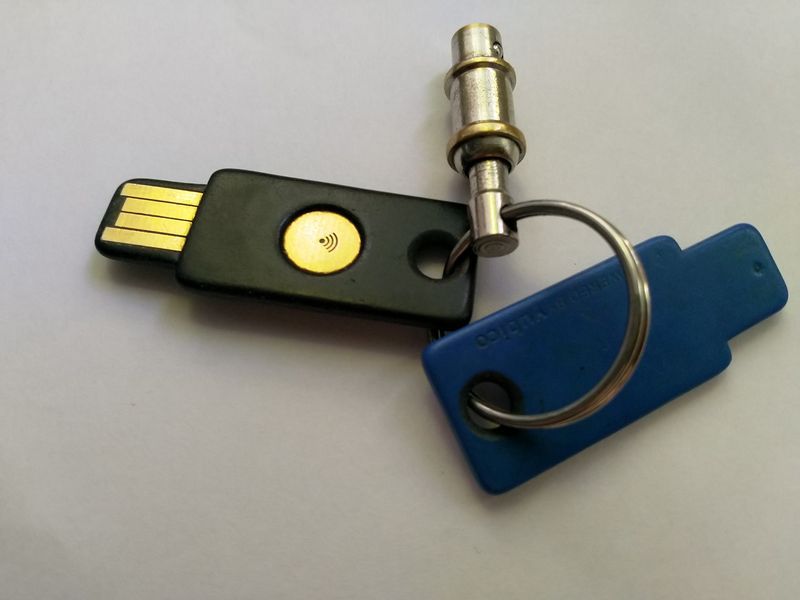Geo Loacation
PHP
1
Beiträge
1
Kommentatoren
349
Aufrufe
-
In den exif Daten können sich die GPS Daten des Standortes verstecken. Die wollen wir haben

<?php //Test ob in der Datei GPS Daten drin sind $img = '../upload/IMG_20181117_104123_ergebnis_34.jpg'; //or $fileName='xxxxxxxxx'; $test = exif_read_data($img, 0, true); var_dump($test); echo "<br>"; echo "<br>"; $img = '../upload/IMG_20181206_153916.jpg'; //or $fileName='xxxxxxxxx'; $test = exif_read_data($img, 0, true); var_dump($test); /** * get_image_location * Returns an array of latitude and longitude from the Image file * @param $image file path * @return multitype:array|boolean */ function get_image_location($image = ''){ $exif = exif_read_data($image, 0, true); if($exif && isset($exif['GPS'])){ $GPSLatitudeRef = $exif['GPS']['GPSLatitudeRef']; $GPSLatitude = $exif['GPS']['GPSLatitude']; $GPSLongitudeRef= $exif['GPS']['GPSLongitudeRef']; $GPSLongitude = $exif['GPS']['GPSLongitude']; $lat_degrees = count($GPSLatitude) > 0 ? gps2Num($GPSLatitude[0]) : 0; $lat_minutes = count($GPSLatitude) > 1 ? gps2Num($GPSLatitude[1]) : 0; $lat_seconds = count($GPSLatitude) > 2 ? gps2Num($GPSLatitude[2]) : 0; $lon_degrees = count($GPSLongitude) > 0 ? gps2Num($GPSLongitude[0]) : 0; $lon_minutes = count($GPSLongitude) > 1 ? gps2Num($GPSLongitude[1]) : 0; $lon_seconds = count($GPSLongitude) > 2 ? gps2Num($GPSLongitude[2]) : 0; $lat_direction = ($GPSLatitudeRef == 'W' or $GPSLatitudeRef == 'S') ? -1 : 1; $lon_direction = ($GPSLongitudeRef == 'W' or $GPSLongitudeRef == 'S') ? -1 : 1; $latitude = $lat_direction * ($lat_degrees + ($lat_minutes / 60) + ($lat_seconds / (60*60))); $longitude = $lon_direction * ($lon_degrees + ($lon_minutes / 60) + ($lon_seconds / (60*60))); return array('latitude'=>$latitude, 'longitude'=>$longitude); }else{ return false; } } function gps2Num($coordPart){ $parts = explode('/', $coordPart); if(count($parts) <= 0) return 0; if(count($parts) == 1) return $parts[0]; return floatval($parts[0]) / floatval($parts[1]); } $imageURL = "../upload/IMG_20181117_104123_ergebnis_34.jpg"; //$imageURL = "../upload/IMG_20181201_081430.jpg"; //get location of image $imgLocation = get_image_location($imageURL); var_dump($imgLocation); //Fehlerbehandlung if ($imgLocation == false) { echo "ERROR"; } //Ausgabe //latitude & longitude $imgLat = $imgLocation['latitude']; $imgLng = $imgLocation['longitude']; echo "<br>"; echo $imgLat . "<br>"; echo $imgLng;Muss noch optimiert werden!
Quelle: https://www.codexworld.com/get-geolocation-latitude-longitude-from-image-php/
-
-
-
PHP Installation
Angeheftet PHP -
-
-
Wichtige Info
Angeheftet PHP -
-


